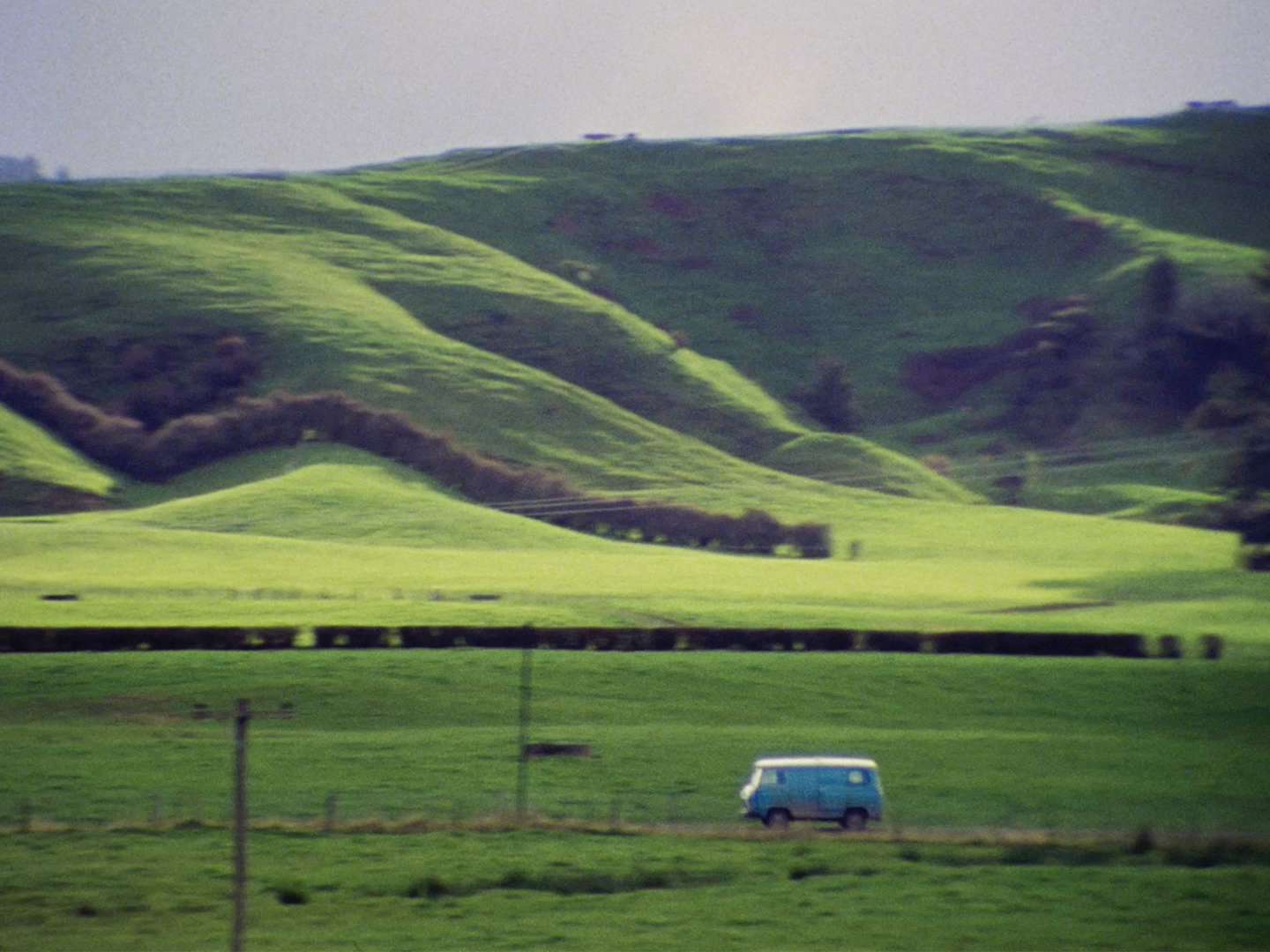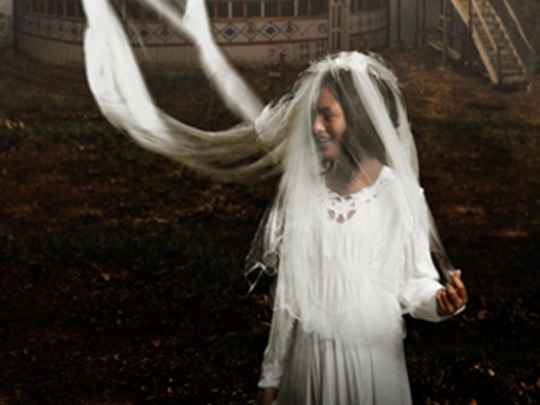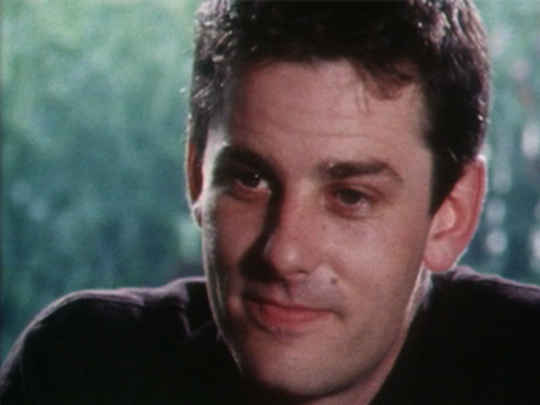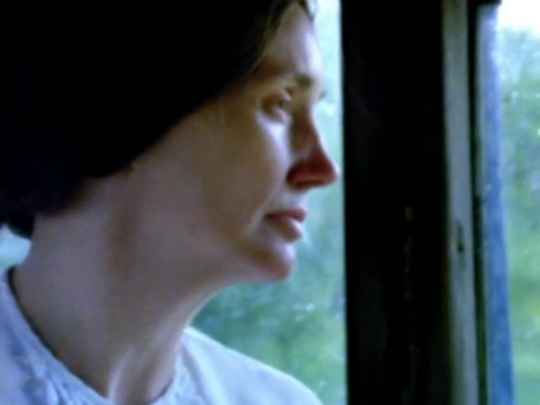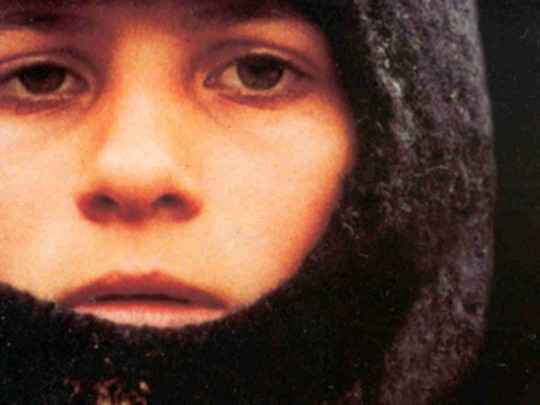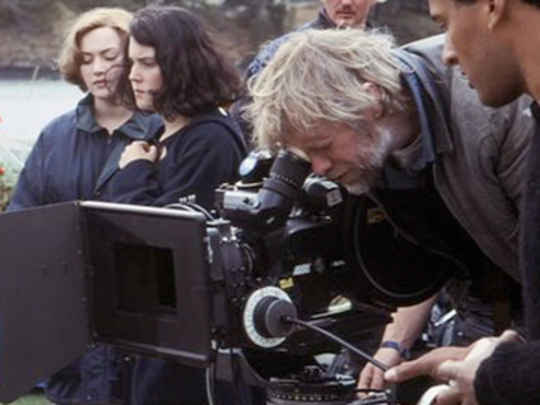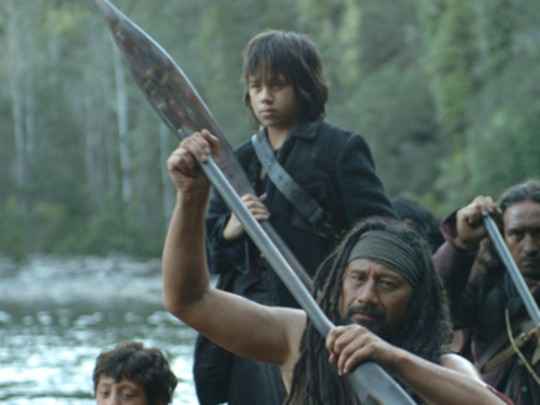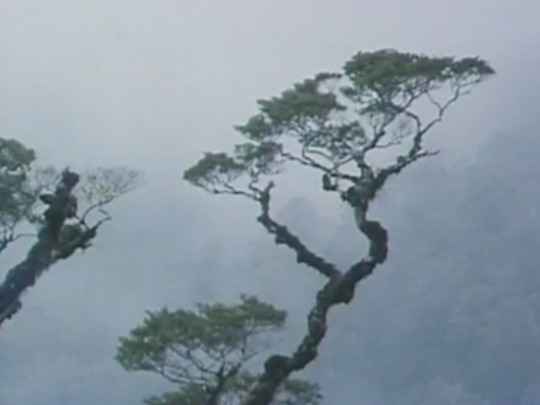In Spring One Plants Alone
Short Film (Excerpts) – 1980
Perhaps the most original talent of New Zealand's first wave belongs to 24-year-old Vincent Ward . . .[The film] took Ward a gruelling one and a half years to film because of the superstitions and physical infirmities of the old woman . . . at once a study of the role of ritual in day to day survival and an indictment of the fate of New Zealand's Polynesians.– The Los Angeles Times, 27 July 1980
...another kind of endurance is demonstrated by the old Māori woman, her back bent from years of carrying firewood and the burdens of caring for her 40-year-old son. Again we find a vignette of tremendous visual power as Ward explores the circumstances of the woman's life in isolation . . . Although the documentary is occasionally difficult to understand, there's no question about [Vincent] Ward's talent or the empathy that spurred him on in the difficult work of making this unusually poetic film.– Reviewer Judy Stone in The San Francisco Chronicle, 11 February 1981
Here it is the visual which is foremost and not the music or commentary . . . [Vincent] Ward holds one unremittingly in a state of total concentration on gestures, daily objects. One feels stifled at times but it's the subject: there is no way of escaping from the poor hovel Ward has forced us to enter, from this closed universe of the survival gestures of two people. It's almost Beckett. The sequences of tightly framed shots reveal exactly the mutual dependence of these two people. An exploration of daily life down to the very breathing process. Cinema without the "cinema".– A French film reviewer in Sonovision magazine, April 1982
Night-time, deep in the misty, mysterious bush of Tūhoe country, at the fag end of the 1970s. Vincent Ward, a Pākehā filmmaker just out of his teens skinny, long-haired and more than a little earnest, is alone in his bed in the dark, senses tingling, listening to someone or something pacing slowly around his spartan hut . . . . He clutches his machete and calls out in a high voice, "Is that you, Niki?" After an hour the circling finally stops and someone comes to the door. It is indeed Niki, a 90kg paranoid schizophrenic Māori man, prone to occasional violent outbursts. Ward has been slowly befriending him during months of painstaking preparations for a fly-on-the-wall documentary about Niki's 80-year-old mother, Te Puhi, but befriended or not, right now, in the middle of the night, in the middle of the Ureweras, Niki seems to have an axe in his hand. "I caught a flash of it in the moonlight," says Ward.– Opening excerpt from an interview with Vincent Ward, The Sunday Star Times, 31 January 2009
Among the outtakes from In Spring One Plants Alone are images of Ward himself. He finds this footage of his young, long-haired self amusing. "There was a certain earnestness; a certain naivete; a certain artiness which make me laugh. I've been around the block three times now." He admires the younger man's sense of adventure, though, the way he was game for anything.– Interview with Vincent Ward, The Sunday Star-Times, 31 January 2009
